#and the lovely comment
Note
Hi there! I am about midway through reading your story Lost Vocabularies and it is amazing!! The whole series has been so lovely, I’m obsessed with the way you write! The way that you convey the boys complicated emotions and capture all the little nuances of their dynamic has me feral!! Beyond even them the way you inject so much personality into the locations is so good, I feel like I am there!! So thank you for writing this lovely story 💕 I was wondering if you happen to have a list of all the books that Bucky and Steve read? I have been looking up a lot of them and adding them to my to read list bc they sound so interesting lol! On that same note, how did you decide what books to mention? Are they all ones that you have read or did you do research to find ones you thought they would like?
I’ve been coming back and rereading this kind and wonderful comment in my inbox over the last few weeks when way too many massive, stressful, time-sensitive things were all happening at once. 💕 But since I have a little breather between crazy periods, I get to dive in here as a treat.
Lost Vocabularies involved a lot of research, which I hope isn’t apparent because I didn’t want there to be any noticeable difference between the parts of the story that are based on places I’d been, foods I’d tried and books I’d read personally—and what was created purely based on research. Fingers crossed that the seams don't show!
In this series, we see both Steve and Bucky use art to process—helping them understand themselves and connect to the world again. Bucky is drawn to stories while Steve as an artist is much more visual, but the underlying impulse is similar. In the same way that you learn a lot by glancing through someone’s bookshelves, what characters read is interesting to me, and revealing. This version of Bucky is a very private person so these books offer a glimpse into his inner life. And as the POV character we get to experience all these things alongside Steve.
I’m not much of a sci-fi or fantasy reader so some of Bucky’s picks were a real challenge for me. But I wanted these to be grounded in the characters and the storytelling functions, not based on my own taste and opinions, though of course those always bleed through.

Steve’s Reading List
The Day of the Triffids by John Wyndham
Alice Neel: People Come First by Kelly Baum and Randall Griffey
The Thing on the Doorstep and Other Weird Stories by H. P. Lovecraft
The Beautiful Mysterious: The Extraordinary Gaze of William Eggleston, edited by Ann J. Abadie
One Mighty and Irresistible Tide: The Epic Struggle Over American Immigration, 1924-1965 by Jia Lynn Yang

Bucky’s Reading List
The Thing on the Doorstep and Other Weird Stories by H. P. Lovecraft
A Scanner Darkly by Philip K. Dick
QED: The Strange Theory of Light and Matter by Richard Feynman
Do Androids Dream of Electric Sheep? by Philip K. Dick
Six Not-So-Easy Pieces: Einstein's Relativity, Symmetry, and Space-Time by Richard Feynman
Nonlinear Dynamics And Chaos by Steven H. Strogatz
Stranger in a Strange Land by Robert A. Heinlein
I’ve included some notes and commentary on why I picked each of these works under the cut.
The Same River, Twice (The Man Is Still Left with His Hands)
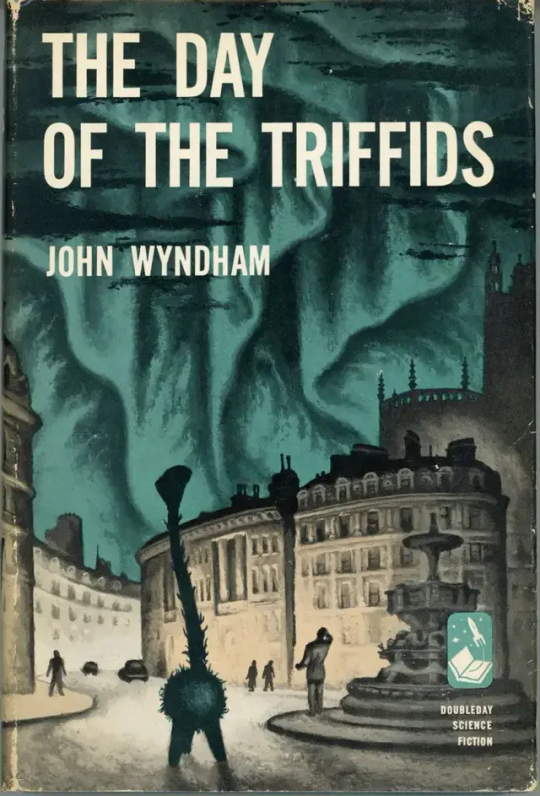
The Day of the Triffids by John Wyndham
Classic post-WWII dystopian sci-fi that focuses on society collapsing after a series of catastrophes that were unintentional but very much caused by people, which leads to a lot of the population becoming blind. Thematically this work engages with the loss of identity that people, both abled and disabled, face in the process of survival and a dark look at what happens after societies break down. How this applies to Bucky is obvious, but part of the argument of this post-Endgame series is that it applies to Steve, too.
Also, there are huge mobile carnivorous plants.
Fun fact: the opening of this novel is said to have been the inspiration for 28 Days Later!
Still Left with the River (The Paradox of Motion)

Alice Neel: People Come First by Kelly Baum and Randall Griffey
Alice Neel’s portraits are extraordinary, almost unnervingly vivid. In this story, Steve is familiar with her work as a fellow New York-based artist active in communist circles in the 1930s. She also worked for the WPA, producing wonderful street scenes that documented New York neighborhoods of the era.
To be honest, I have so many questions about what Steve was up to in the late 1930s before his war mania of the 40s hits.
One of the core themes of this series is Steve struggling with what his body is for if it’s no longer for violence. Who is he if he’s not a soldier? What is his radically changed body if it’s not a weapon? How do you come home from the war?
In this regard, Steve and Bucky have all kinds of shared life experience.
So thematically I include Neel because of her startling gift for capturing personalities and bodies through a process of frank, earnest, truthful observation of the integrated completeness of body and self: this space that’s you.
But a book of Alice Neel’s work with her sensitive portraits and fleshy frank nudes pulls him into flipping through page after page of these personalities and bodies, not idealized: seen.
Steve isn’t ready for that when he bumps into this big “impractical” art book in a holdover Barnes & Noble in Brooklyn, not when he’s still so shook up and adrift. But he will be.
There’s such empathy and radical humanism to her pieces. “People,” as she famously said, “come first.” I stand by the conclusion that Steve would love her work.
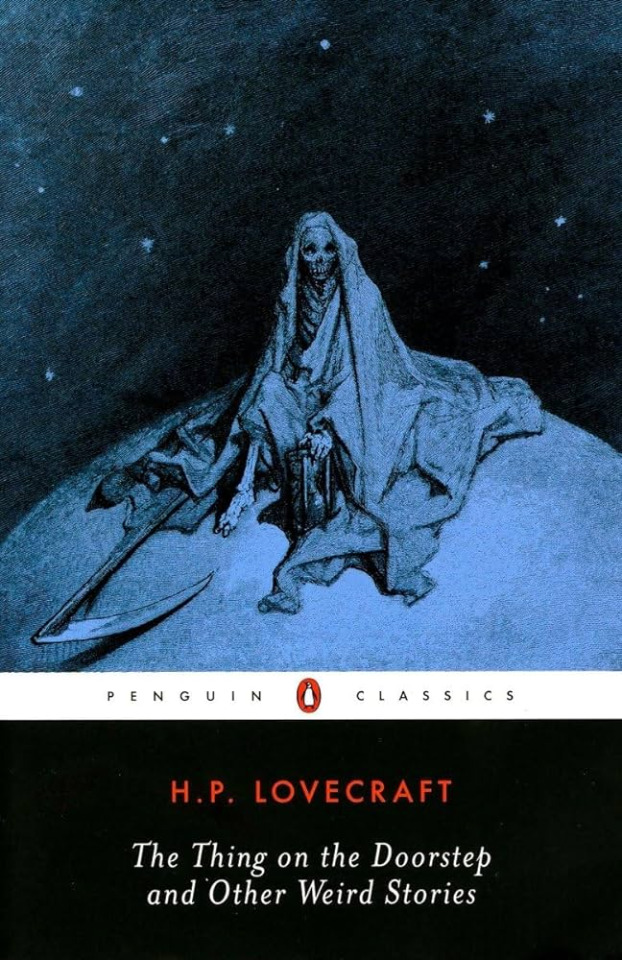
The Thing on the Doorstep and Other Weird Stories by H. P. Lovecraft
Lovecraft was relatively unknown in his lifetime—he died in 1937—but his stories were published in popular fantasy pulp magazines like Weird Tales and Astounding Stories, which is where Bucky would have come across his work. The fact that Steve recognizes Lovecraft by name means that teenage Bucky must have talked about what he was reading and the pulp stories he liked with teenage Steve, which is adorable—“this Lovecraft fellow, Steve, you wouldn’t believe the stuff he comes up with.” And Steve was paying attention enough to remember two decades and change later without the benefit of his serum-enhanced memory, which hurts my heart a little in the best possible way.
That’s how Steve all these years and decades later is able to wordlessly toss this collection of H. P. Lovecraft’s stories at Bucky on a hot hazy stumbled-upon beach in northern Florida and watch Bucky’s whole face light up.
And of course Bucky would view Lovecraft as a great beach read 😂
But this is the basis for something I’ve written into this series: Bucky excitedly sharing things he finds interesting with Steve—wanting to tell Steve first, Steve most. And although Steve is quiet, stoical and very self-contained, he’s paying a whole hell of a lot of attention.
Given that Bucky is canonically a Tolkien fan, I think the imaginativeness and ranging scope of Lovecraft’s complex, often interconnected stories would appeal to him. And, thematically, Lovecraft is distinctive for the era for having characters psychologically fragment when confronting these vast inhuman others.
“The Call of Cthulhu” opens with:
The most merciful thing in the world, I think, is the inability of the human mind to correlate all its contents. We live on a placid island of ignorance in the midst of black seas of infinity, and it was not meant that we should voyage far.
Steve and Bucky have each voyaged out a long way.
Trauma, in a way, is a form of terrible knowledge. You can heal but you can’t unknow things.
Not Language but a Map (The Grammar of Sensation)
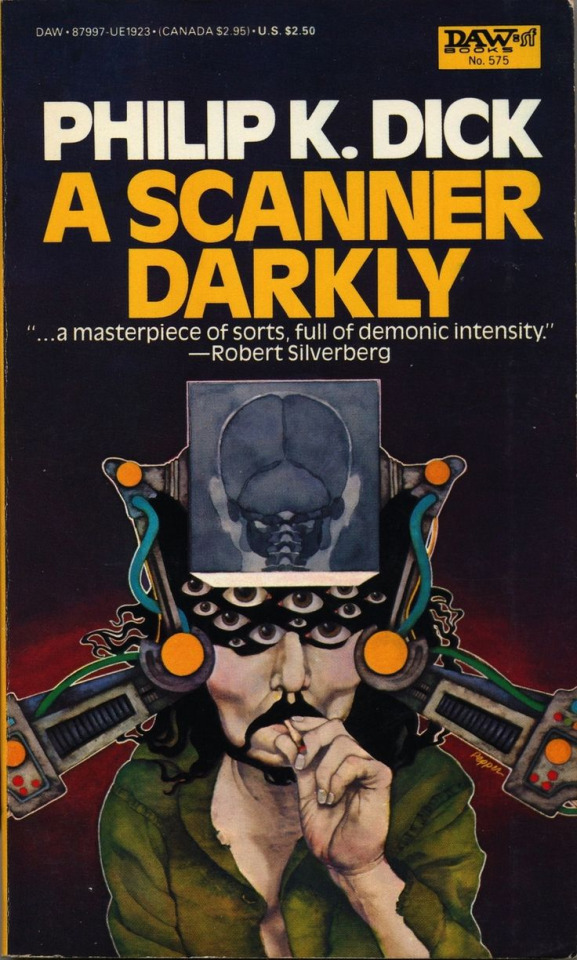
A Scanner Darkly by Philip K. Dick
This is the first book in the series that we see Bucky pick for himself. And, wow, he picks a doozy with themes of multiple and unstable identities, invasive surveillance, manipulation, psychosis, and how individuals can get chewed up by larger systems, falling through the cracks of society. Dick was writing based on his own troubled experiences with southern California drug culture of the early 70s, but this work gets at much more fundamental darknesses that I think would speak to some of the horrors Bucky has gone through and won’t talk about, not even with Steve.
Within the first few pages, we get this:
It was midday, in June of 1994. In California, in a tract area of cheap but durable plastic houses, long ago vacated by the straights. Jerry had at an earlier date sprayed metal paint over all the windows, though, to keep out the light; the illumination for the room came from a pole lamp into which he had screwed nothing but spot lamps, which shone day and night, so as to abolish time for him and his friends. He liked that; he liked to get rid of time. By doing that he could concentrate on important things without interruption.
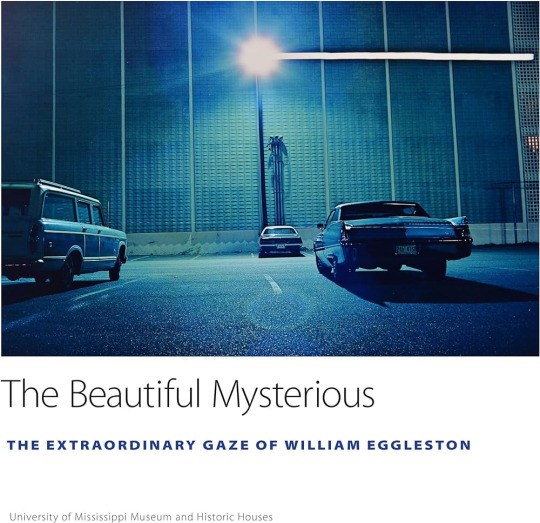
The Beautiful Mysterious: The Extraordinary Gaze of William Eggleston, edited by Ann J. Abadie
Eggleston was an early pioneer in color photography and that fascination with color is very apparent in his work. I think this focus would grab Steve as an artist who doesn’t take seeing the full spectrum of color for granted. Even in the MCU’s thin action-film scripts, Steve comments on things that offend his aesthetic sensibilities even when that has absolutely no bearing on the situation at hand, from Stark Tower to Lang’s van.
Not even a world-ending crisis can keep Steve from going, wow, no, that’s ugly. I enjoyed running with that 😂
Steve’s view of Eggleston’s photographs shifts over the course of the series, reflecting what he’s feeling, from the fragmented and disconnected detachment—“isolated and off-kilter”— that he sees in them at the beginning that shifts to the passionate engagement in the world he finds in them later.
Steve looks through the whole book of William Eggleston’s photographs again and at first the colors still roll over him like the shockwave of a distant explosion, all he can focus on. But gradually the subjects and compositions pull forward, too: monumentalized images of the everyday that at first seem neutral, the work of a detached observer. But the off-center framing of ordinary life is so deliberate as though everything might be important and where every detail deserves attention—that’s nothing like neutral. That’s not detached at all. You have to care a whole hell of a lot.
This mirrors the journey this post-Endgame Steve goes on. Because Steve Rogers should be a character who cares a whole hell of a lot, not what the MCU writers eventually reduced him to. And that’s what this fix-it is trying to fix.
Lost Vocabularies that Might Express (The Memory of These Broken Impressions)
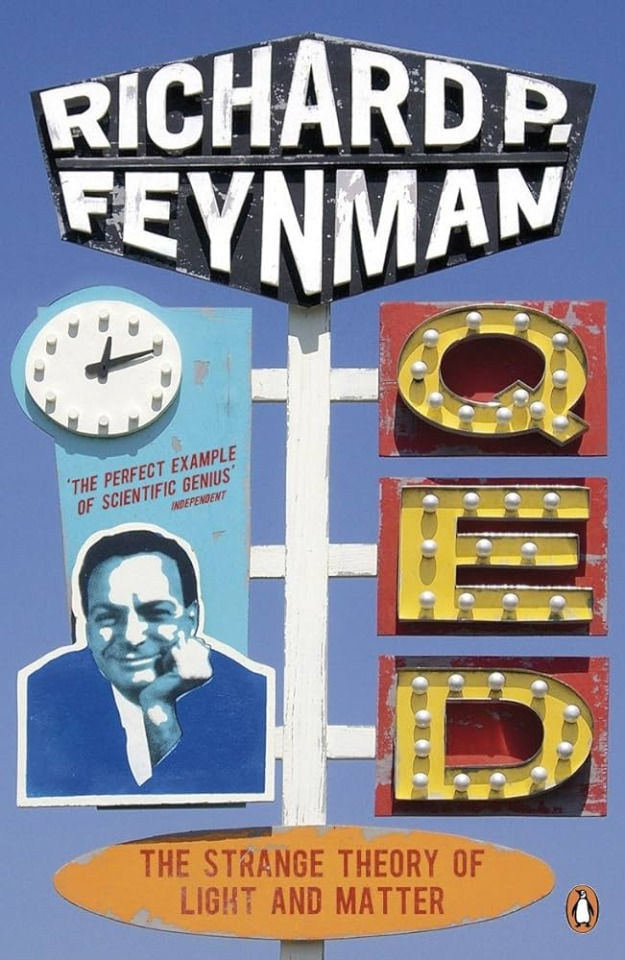
QED: The Strange Theory of Light and Matter by Richard Feynman
I love writing Bucky as a big fucking science nerd. His last night in New York and how does he want to spend the time? At a science fair with his best friend and a couple of pretty girls. So Bucky reading about quantum electrodynamics is delightful to me. The thing is, though, Bucky is a bright enough guy with a high school education. He’s not a genius—and the MCU is lousy with geniuses. But if Bucky wanted to learn a little more about all this quantum stuff he heard about in passing during some vague and very improbable sounding explanations, which by the way also allowed one of the few people still living who truly matters to him and the closest thing Bucky had left to family to fuck off to the past, well, Feynman’s QED isn’t a bad place to start in understanding some of this quantum stuff, at least.
Feynman here is very much writing for a popular audience. His writing is conversational—the book is adapted from a set of lectures he gave—and his voice is witty, casual and surprisingly light, but at the same time Feynman is deeply invested in helping lay people understand quantum mechanics. The book opens with:
Alix Mautner was very curious about physics and often asked me to explain things to her. I would do all right, just as I do with a group of students at Caltech that come to me for an hour on Thursdays, but eventually I’d fail at what is to me the most interesting part: We would always get hung up on the crazy ideas of quantum mechanics. I told her I couldn’t explain these ideas in an hour or an evening—it would take a long time—but I promised her that someday I’d prepare a set of lectures on the subject.
I prepared some lectures, and I went to New Zealand to try them out—because New Zealand is far enough away that if they weren’t successful, it would be all right! Well, the people in New Zealand thought they were okay, so I guess they’re okay—at least for New Zealand! So here are the lectures I really prepared for Alix, but unfortunately I can’t tell them to her directly, now.
C’mon! Tell me Bucky Barnes would not be hooked by this opening.
Thematically, and more seriously, the question of how could Steve do this? has two very different meanings. So far in this series Bucky isn’t ready to confront the harder version of that question which comes potentially with some very painful answers: how could Steve make that choice? Nope, he’s not ready for that. Instead, his brain unconsciously takes the easier way out: trying to understand quantum electrodynamics. 😂😭
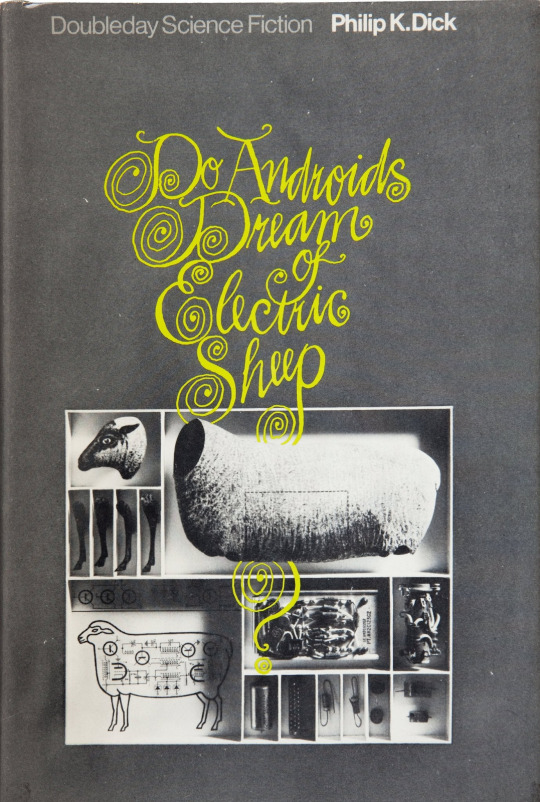
Do Androids Dream of Electric Sheep? by Philip K. Dick
Bucky must have liked A Scanner Darkly, because he went for another Philip K. Dick novel. Today remembered mostly as the source material for Blade Runner, this bleak dystopian novel is set in the aftermath of a devastating nuclear war that destroys most life on Earth. The work has themes around empathy—who feels empathy and for what?—materialism and what really makes us human.
I find it interesting how Sebastian Stan talks about The Winter Soldier in terms of someone who has undergone a process of total desensitization, which to varying degrees is deliberately part of the training of all soldiers. But rebuilding his core sense of empathy was one of the things Bucky chose to do as soon as he had any agency in that two-year period where he was on the run, which is remarkable. As a person who has been treated as though he wasn’t human and had his empathy forcibly stripped from him, I think Bucky would have a lot of complicated feelings about the enslaved androids who escape but are ruthlessly tracked down and killed. Some of these escaped androids are dangerous and do lack basic empathy—shown in the book by torturing and mutilating an animal—while other androids seem like ordinary people just trying to live their lives.
I like that Bucky talks about the book with Steve later in the story, returning in my view to a very old habit of bookworm Bucky wanting to share what he’d been reading with Steve <333
“I need to find something to read next,” Bucky says after wrapping up his description of an imagined religion that involved plugging into a box to virtually suffer the existence of a man forever walking up a steep hill while struck by crashing stones.
“Well, did the androids dream of electric sheep?” Steve asks.
“Who knows?” Bucky knocks into him gently as he takes the bowl Steve passes over. “They just wanted to be free. Though the free people just wanted to own stuff or plug into a box and suffer. So, you know, sort of a grim outlook. ”
“A little light, cheerful reading.”
“Hey, we live in a world where people write ‘Take back what’s yours’ in the streets and then smash up the windows. Dystopias don’t seem so far off the mark.”
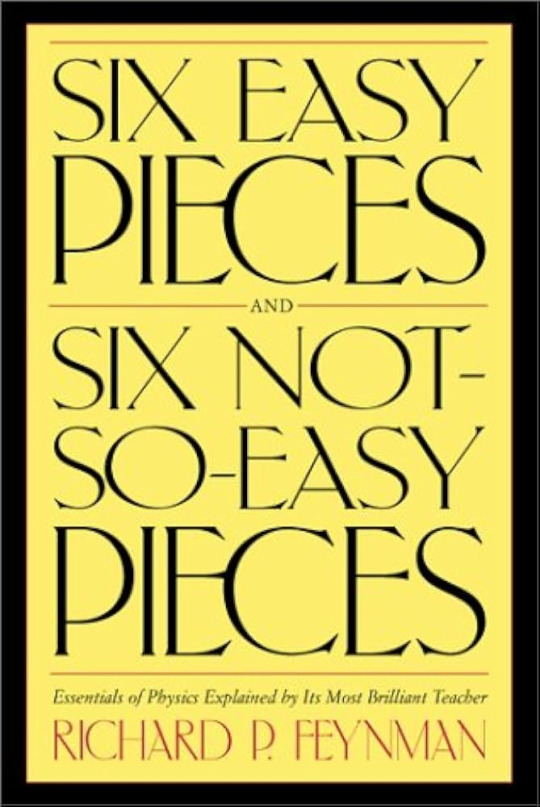
Six Not-So-Easy Pieces: Einstein's Relativity, Symmetry, and Space-Time by Richard Feynman
Another case of Bucky sticking with an author he likes! To me, this implies that Bucky has already read Feynman’s Six Easy Pieces, which explains some of the foundational basics of physics for a very broad and non-technical audience. Six Not-So-Easy Pieces is also drawn from Feynman’s famous Lectures on Physics, focusing here on relativity and space-time, but this work assumes a greater knowledge of math, hence the name. But as a legendary sniper Bucky must have a strong aptitude for math and anyway I just leaned into making Bucky an all-around nerd, because Bucky Barnes, nerd who grew up hot, is delightful to me.
Relativity, Symmetry, and Space-Time are all on point for a post-Endgame fix-it, which I think should count as a not-so-easy piece in its own right.
Throughout the series, we see Bucky using physical copies when he reads fiction, more or less from unconscious nostalgia: connecting back to memories of his younger self who was an avid reader of pulp magazines and cheap paperbacks. Once Steve gets him going with that first quietly tossed-over gift, Bucky always carries around a sci-fi or fantasy book in this series despite the limited space in his backpack. And this familiarity wouldn’t just be from his pre-war life since I figure Bucky would have gone for the Armed Services Editions that were distributed for free to soldiers. Bucky likely traded with other soldiers once he finished a book if he couldn’t get a new ASE distribution: trading in his finished novel for a new one is Bucky unconsciously falling back into another old habit.
But for non-fiction, Bucky is absolutely here for the Modern Marvel of being able to carry around as many books as he likes on his phone. I figure Bucky would have used public libraries during certain stages of his recovery when he was homeless and migratory since they are a place to get information that is consistently available in cities; and a warm, quiet place you can go with a minimal number of security cameras. I headcanon a middle-aged librarian who has a few streaks of gray in her dark hair—and who reminds Bucky of someone but he has no idea who—explaining what e-books are to this tall, gaunt, soft-spoken homeless guy with an eye contact problem. And this person who isn’t the Asset anymore and isn’t Bucky Barnes yet has the out-of-nowhere thought: huh, whaddaya know. That’s pretty neat.
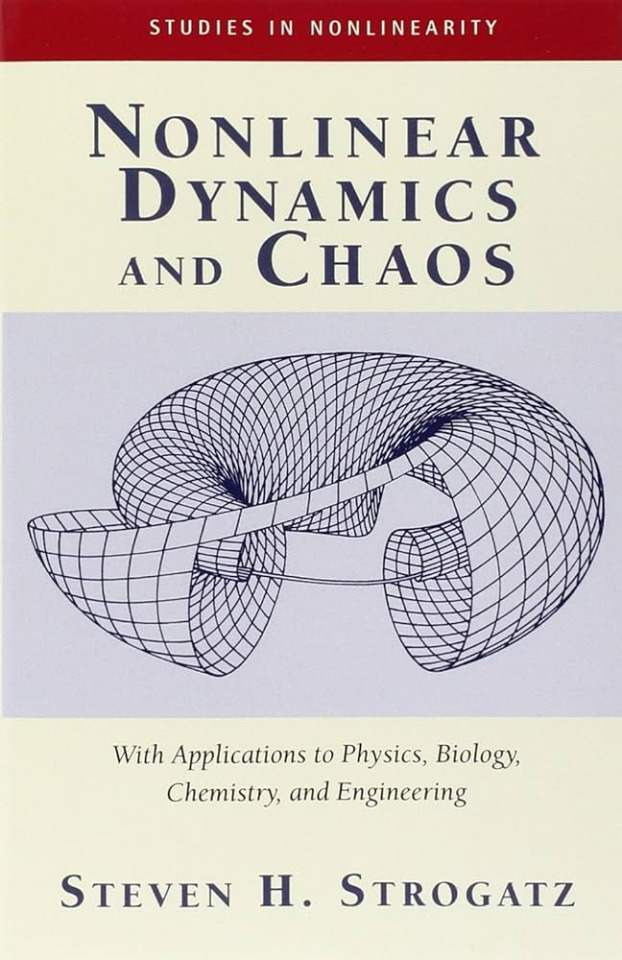
Nonlinear Dynamics And Chaos: With Applications To Physics, Biology, Chemistry, And Engineering by Steven H. Strogatz
Isolated systems tend to evolve towards a single equilibrium and these equilibrium points have been the focus of many-body research for centuries. But life is generally not that simple because most systems aren’t isolated. Often the dynamics of a system result from the product of multiple different interacting forces and objects in these systems can change between multiple different attractor wells over time. Or as Strogatz puts it:
As we’ve mentioned earlier, most nonlinear systems are impossible to solve analytically. Why are nonlinear systems so much harder to analyze than linear ones? The essential difference is that linear systems can be broken down into parts. Then each part can be solved separately and finally recombined to get the answer. This idea allows a fantastic simplification of complex problems, and underlies such methods as normal modes, Laplace transforms, superposition arguments, and Fourier analysis. In this sense, a linear system is precisely equal to the sum of its parts.
But many things in nature don’t act this way. Whenever parts of a system interfere, or cooperate, or compete, there are nonlinear interactions going on. Most of everyday life is nonlinear, and the principle of superposition fails spectacularly.
You can think of nonlinear dynamics as situations in which the sum of the parts is insufficient to understand the whole. This connects to multiple themes in this story as Bucky and Steve try to understand themselves, their lives and each other. But here Bucky is also just continuing to live his best life as a nerd with a strong intuitive knack for math, a high school education, an internet connection and a growing collection of science e-books. Or as Bucky puts it:
“It’s nice, though, like this smart guy is just talking to you but doesn’t assume you’re dumb because of what you don’t know.”
It’s touched on only very lightly in the series so far, but Bucky has a lot of complex feelings about higher education that relate to class, indirectly to sexuality, and go back to the experience of being the son of upwardly mobile working-class immigrants who were very bought-in on a traditional take on the American Dream.
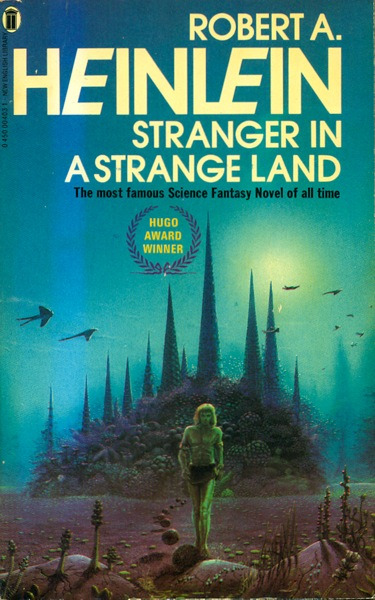
Stranger in a Strange Land by Robert A. Heinlein
I picked this partly because I thought the title would grab Bucky, who has been a stranger in a strange land several times over. Thematically this midcentury sci-fi novel focuses on challenging social norms through having the main character, a human who’d been raised by Martians on Mars, come back to Earth as an adult. A best-seller in its day that was controversial for its rejection of Christianity, monogamy and the nuclear family, the work is very tied to the looming cultural changes of the 60s and 70s.
The novel’s critical reputation has been steadily in decline for decades, but I think Bucky would find it interesting since he grew up within the traditional early 20th-century culture this novel satirizes and challenges—mores that this story’s version of Bucky didn’t unquestioningly accept but didn’t openly challenge, either.
Having Bucky pick this novel reflects the themes for the last act of this story that focus more on Steve and Bucky's different experiences as closeted queer men growing up in a deeply homophobic society. These experiences continue to shape and impact them and yet are also a past these two are coming to terms with and growing beyond.
Fun fact: this novel coined the word “grok.”
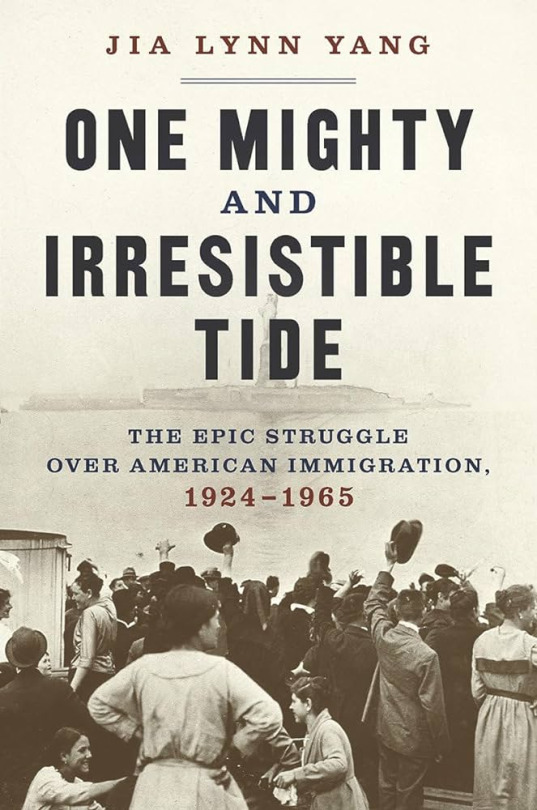
One Mighty and Irresistible Tide: The Epic Struggle Over American Immigration, 1924-1965 by Jia Lynn Yang
Of all the books featured in this series, One Mighty and Irresistible Tide is my top recommendation. This is an accessible, well-written history of a topic that haunts American history: immigration. The specific focus is the waves of legislation passed in the first half of the 20th century that tried—and often succeeded—in limiting who could legally immigrate based on the racial and ethnic hierarchies that equally haunt American history, right down to the foundation.
In this series, I wanted to pick up the themes of social justice and immigration that were so vaguely and incoherently included in TFATWS. These themes are inherent in the Snap and Return plotline except that Disney does not want to touch any of these politics with a ten-foot pole. But I remain fascinated by trying to wrap my mind around what it would mean for half the population to vanish and then return five years later, catastrophically in both cases. It’s a huge, intricate, sticky, difficult world-building problem that’s inescapably political.
Steve isn’t quite ready to dive into facing or helping to fix the problems of the post-Return world that his actions helped to create. But here we get to see Steve’s burned-out passion and conviction slowly rekindle as he reads about the complicated and often ugly history of American immigration—and he gets mad about it. Of course, he gets mad about it! This is my answer to the ludicrous idea that Steve Rogers could quietly sit out the second half of the twentieth century.
At the same time, I can have compassion for Steve knowing he can’t keep going but not knowing how to help himself, only to be given the cursed monkey’s paw of time travel. And he fucks up. His actions have real and lasting consequences. But that doesn’t make the situation hopeless or mean Steve can’t try to repair the relationships he damaged or work to regain the trust he lost, assuming he’s lucky enough to be given another chance by people who love him but have been hurt by his choices.
One of the greatest challenges in writing this Endgame fix-it was accepting Endgame as the starting point of the story and trying to reconcile a character I love with the choices canon has him make. Over the course of these stories, the central point isn’t Steve coming back to Bucky. It’s Steve coming back to himself. Through a slow and painful struggle, Steve finds himself again—rediscovering his stubborn endurance, his compassion for others and his drive to set wrongs right. Steve stumbled, badly, but he gets back up. Because that’s who Steve Rogers is.
And because of who Bucky Barnes is—his innate kindness, his warm-hearted generosity and his stubborn loyalty that isn’t blind but runs deep—that’s how these two characters come back to each other, after everything.
Deliberately, this series is the first hard-fought and hopeful glimmer in a long trudging process that can get so heavy to carry forward, day after day, but is shot through with moments of beauty and joy all the same.
I can't go on; I'll go on.
In other words, to quote one of my favorite poets: what the living do.
#thanks for the ask!#and the lovely comment#<333#book recommendations#stucky#stucky meta#lost vocabularies that might express#otp: till the end of the line#otp: even when i had nothing i had you#the existential loneliness of steven g. rogers#bucky barnes needs a hug#steve rogers also needs a hug#steve makes better choices#he's trying folks#all of my stories end up including a bunch of art and history#and I'm okay with that
18 notes
·
View notes
Text
i watch baseball for the side quests
update: i think you should look at the reblogs for more important baseball hijinks
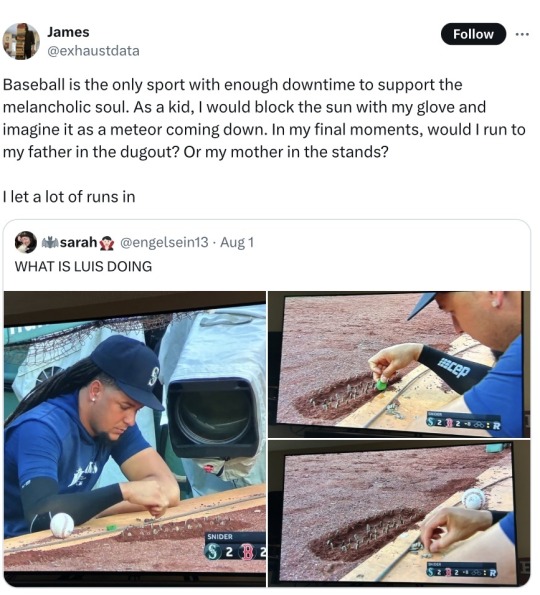
#please… when he started decorating it with sunflower seeds#when the commentators were like: he actually tried to pour water in the moat#;_______; i love#baseball can not be a real sport#my fave moment is still mantis-chan perched on victor robles’ cap. the tandem we deserve#but this. this come close#the nhl should let opposing players in the penalty box build a snowman together#lourdes gurriel jr#luis castillo#arizona diamondbacks#seattle mariners#baseball#mlb
222K notes
·
View notes
Text

This is why I read the reddit comments
#on like one of those am I the asshole update subs. I fucking love those#this one was swill tho comment op is right#art philosophy tag
123K notes
·
View notes
Text
DONT BE AFRAID TO COMMENT ON OLD FICS DONT BE AFRAID TO COMMENT ON FICS IN A FANDOM THE AUTHOR MAY NO LONGER BE ACTIVE IN. IF THE STORY IS STILL UP LET THEM KNOW YOUR THOUGHTS IT MIGHT JUST BE THE REMINDER THAT MAKES THEIR DAY.
SINCERELY SOMEONE WHO JUST GOT A REPLY THAT MADE ME WANNA MAKE THIS POST
#reject modern fast fashion fandom culture#comment on shit from 2012 to scare and or delight the author#anytime I see ppl reading my haikyuu fics I wanna cry with happiness#being reminded of fics and then looking and realizing I still love them is a true gift#COMMUNITY BITCHES THIS IS WHAT THAT IS
45K notes
·
View notes
Text









comments from tiktok about siblings
#trying not to cry#i’m in the uk rn and missing my brothers#had to add the mothman comment again bc i love it too much#wake up besties new webweave#webweaving#web weaving#webweave#web weave#parallels#siblings
57K notes
·
View notes
Text

Sleepytime for the gang! <3
continuation of this
Caine's reaction:
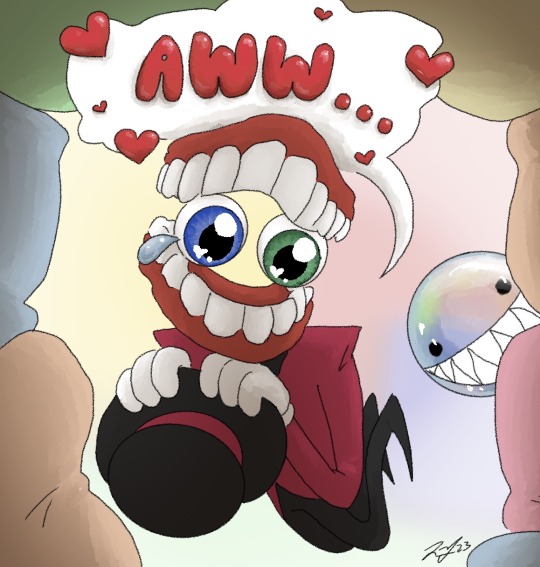
#caines just happy his stars (prisoners) are getting along#my art#digital art#tadc#tadc comic#tadc caine#tadc zooble#tadc kinger#tadc gangle#tadc ragatha#tadc jax#tadc pomni#tadc fanart#tadc bubble#the amazing digital circus#let me know if you guys want more :) i love all of the comments + reactions + tags#kinger doesnt sleep
25K notes
·
View notes
Text

Thematically appropriate comic for Make a Terrible Comic Day!!
I saw the original post this morning and it made me get out of bed to make something, so thank u Pseudonym Jones mission accomplished
#makeaterriblecomicday2024#comic#comics#sketch#does this count as horror like comment subscribe down below#Ever since I stopped being on social media as often/stopped taking it deadly serious I've been able to fall back in love with the process..#...of art which is fantastic!! I do enjoy taking my time with things but it's still very easy to get caught up in making something Perfect#ESPECIALLY WITH COMICS#As a comic maker and comic enjoyer you have to remind yourself people speed through reading them. It's ok to take shortcuts#Every frame does not need to be a painting#Anyways this was a great way to make something after falling into an MMO hole for a few days...#unrelated did u guys know Wizard 101 is still alive with an active player base#Ok hopefully I can get back on track to finishing my next short horror comic in the next month or so wish me luck fellers
11K notes
·
View notes
Text

i wanted to join that twitter meme
#scott summers#cyclops#charles xavier#logan howlett#jean grey#Logan becomes a softie to his good boy#only him is allowed to comment on Scott's leadership#and be a meanie to him cause that's how he shows love
7K notes
·
View notes
Text

#writing#writeblr#Fanfiction#fanfic#ao3#ao3 writer#fanfic writer#writing meme#fanfic meme#ao3 comments#love all comments
15K notes
·
View notes
Text

Norwegian Mikus :)
Left is Miku as a russ and right is Miku in a bunad!
#i had so much fun with this#its not often i get to draw my culture#oh ywah and this is digital art if you were wondering#ANYWAYS i could go on for hours about russ and bunads#but i dont wanna bore anyone xd#if anyone is curious i would love to answer in the comments :D#OH YEAH I HAVENT DRAWN MIKU SINCE I WAS LIKE TWELVE LOL#i hope im not too rusty teehee#its nice drawing her again#maybe i should do it more#who knows#okay im done ranting#hatsune miku#miku worldwide#worldwide miku#miku#vocaloid#norwegian#norwegian miku#17th of may#norway#marsipain art
4K notes
·
View notes
Text
You guys are commenting on the fics you read right? You’re at least leaving kudos on the Astarion smut and the pairs that have less than 20 fics for them too? You’re bookmarking stories you really like that are still being updated and ones that haven’t been touched in over a year right?
You know that even the smallest interactions are like cocaine to fic writers right? You understand how important a string of emoji hearts left behind on a chapter at three am is right?? Right????
You’re treating AO3 like a community and not a content factory….right?
#this isnt bg3 specific btw im seeing a lot of fandoms rotting cause of this#ao3#archive of our own#bg3 fanfiction#bg3#PLEASE YOU GUYS INTERACT WITH THE THINGS YOU READ#you’re not being weird or annoying!!! it doesn’t matter how old the fic is!!!#you can just say ‘I love this’ or ‘it’s three am and I haven’t slept yet cause I was reading this’#you can copy and paste a paragraph you like and add ‘!!!!!!’ after it#theories in the comments! mention when you think you’ve found foreshadowing!!!#if there’s a part where you have to physically put your phone down and smile off into the distantce? TELL THE AUTHOR#you can leave comments every chapter too!!! ITS NOT ANNOYING
17K notes
·
View notes
Text
people who go through the main tags of big and tumultuous fandoms looking for new fresh good posts to reblog are essential to any circle. they’re like true hunter gatherers leaving the safety of settlement and braving the unknown wilderness to find food for the flock. they risk their lives every day and will come back with a few scratches at best and severe psychological damage at worst
#peach rambles#hall of fame i guess#i love hearing everyone share their stories in the comments. me personally? this is about kingdom hearts#usually the main culprit is disdain and dusty old misogynistic takes for kairi (the main girl)#there's x reader occasionally#cursed content with random disney characters#or people who complain about how much the series has expanded#that don't understand that over half the story is contained in the so-called 'side games'#or just generally dusty takes that have been disproven already
18K notes
·
View notes
Text
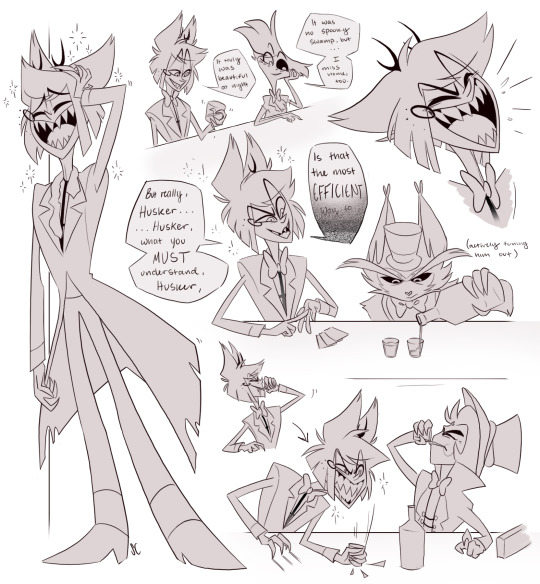
someone said more drunk alastor. my wish is your command
#hazbin hotel#alastor#Drinking#alcohol#angel dust#lucifer morningstar#husk#Fanart#Drunk alastor#please leave me comments i love to hear your little comments
10K notes
·
View notes
Text
I have such a deep appreciation for the BG3 voice actors. They will willingly take time out of their day to make videos just to indulge us. Like. Lae’zel reciting “Milkshake” in a deadpan voice. Rolan lost in a library. Zevlor nervously asking Tav for a kiss. Gale reciting poetry. Astarion trying to get us up in the morning. Jaheira and that lightbulb.
And the coolest part is that, given their willingness to do all those things, that appreciation is clearly mutual.
#rb or comment more examples!#like ffs they clearly love the fandom and these characters and that is such a nice feeling#bg3#Baldur’s gate 3#Lae’zel#shadowheart#karlach#astarion#Wyll#Gale#Halsin#Rolan#Zevlor#minthara#jaheira#minsc and boo
4K notes
·
View notes


